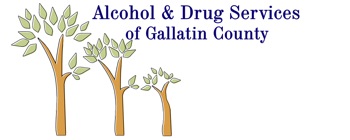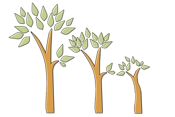|
|

Signs & Symptoms of Substance Abuse
|
On this Page
Visit other Resource Pages
|
Many of the following behaviors can be a symptom of normal adolescence; however,
take a few together, and your student/child may have a problem with substance abuse. Listen to yourself. Teacher and parental instincts can be
a valuable guide.
Grades
School Attendance
Extra Curricular Activities
Physical Symptoms
Criminal/Illegal Behavior
Disruptive Behavior
Atypical Behavior
Home Problems
|
|
Stages of Adolescent Substance Abuse
Stage 1: Experimental/Social Use of Drugs or Alcohol
Stage 2: Purposeful Misuse of Drugs or Alcohol
Stage 3: Habitual Use or Daily Preoccupation with Drugs or Alcohol
Stage 4: Dependency or Addiction to Drugs or Alcohol
Behavioral
 Uses drugs or alcohol daily or on a continuous basis Uses drugs or alcohol daily or on a continuous basis
 May have run away from home May have run away from home
 Takes serious risks or engages in criminal behavior to obtain drugs Takes serious risks or engages in criminal behavior to obtain drugs
 Has had possible overdoses Has had possible overdoses
 Has quit school or was expelled from school Has quit school or was expelled from school
Emotional or Mental
 Takes drugs to avoid depression or pain Takes drugs to avoid depression or pain
 Is out of control with their drug use escape realities of daily living Is out of control with their drug use escape realities of daily living
 Experiences guilt, shame, remorse Experiences guilt, shame, remorse
 Has suicidal thoughts or attempts Has suicidal thoughts or attempts
 Has changes in personality Has changes in personality
 Exhibits changing emotions (depression, irritability, aggression, irritation, Exhibits changing emotions (depression, irritability, aggression, irritation,
apathy)
 Experiences memory loss, flashbacks, paranoia, volatile mood swings, other Experiences memory loss, flashbacks, paranoia, volatile mood swings, other
mental problems
 Takes drugs to feel normal; they are unlikely to experience euphoria Takes drugs to feel normal; they are unlikely to experience euphoria
 Does not care about getting caught; they are focused on getting and using Does not care about getting caught; they are focused on getting and using
drugs at any cost
 Focuses all interest on getting and using drugs Focuses all interest on getting and using drugs
Physical
 Has blackouts Has blackouts
 Shows signs of physical deterioration (health problems, weight loss) Shows signs of physical deterioration (health problems, weight loss)
 Has poor physical appearance Has poor physical appearance
|
|
What Can Parents Do?
|
|
What if the answer is "yes?" Your child is using alcohol
and/or other drugs?
In a small percentage of cases, parents can work with their own kids to get them to stop. This might be easiest when the young person
is just using occasionally, to have a good time.
Of course, the earlier you start talking to your children about alcohol and/or drugs, the better the chances are they won�t become involved with them.
If a child reaches the age of 20 without using alcohol, tobacco or marijuana, the probability is almost zero he or she will ever develop a serious drug
problem.
If you have questions or concerns about alcohol, tobacco or other drug use
in your child or family, call the Adolescent Resource Center at 586-5908.
You will be able to talk to someone who can help give you good,
confidential, and caring information. |
|
-Other Parenting Resource Pages -
|
|
|
|
Other resources:
|
|
 |
|
Adolescent Resource Center
(406) 586-5908
|

|
| |